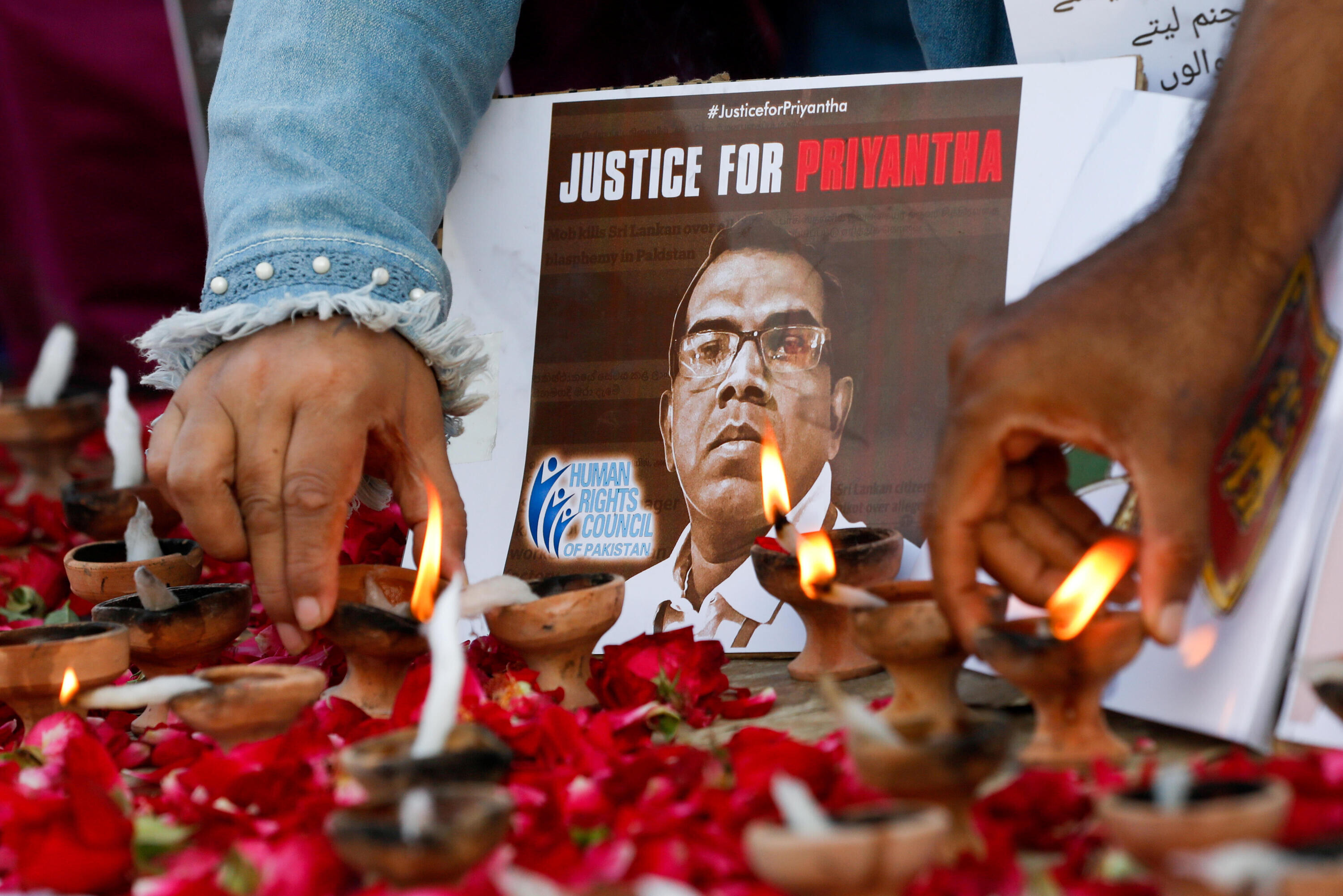Caught up in tumult
Religious intolerance and resultant terror are on the rise in Pakistan due to the dominating influence of certain groups on the government

It must be quite monotonous for the security analysts watching Pakistan amid the rapidly changing political and security situation in the country. No sooner than the dust started settling down in the aftermath of the spate of terror attacks in Baluchistan and Lahore claiming many lives, a case of most horrendous blasphemy came to fore on February 13 in Khanewal — a frenzied mob lynched a mentally deranged person on suspicion that he had allegedly desecrated the Quran on February 12. In a very grotesque manner, reminiscent of the dark ages, the suspect was tied up to a tree and was brutally stoned to death. More shockingly, the police had arrested the victim but the infuriated mob displaying no mercy, snatched the person from the police custody and executed him to death. This shows the level of intolerance prevailing in the minds of many people in Pakistan who are products of a large-scale religious indoctrination continuing for the last several years and are today completely devoid of any rationale or reasoning.
Although Prime Minister Imran Khan, in a tweet, has once again claimed of maintaining a zero-tolerance policy against anyone taking the law into their hands, and stressed that mob lynching's would be dealt with full severity of law. Yet, this unfortunate incident has happened barely three months after another cruel incident of similar nature when a Sri Lankan national, Priyantha Kumara was mercilessly beaten to death on false suspicion of blasphemy. Immediately after this brazen act, Prime Minister Imran Khan had tweeted on similar lines assuring the people of Pakistan that law of the land would prevail as the government followed a zero-tolerance policy, avowing that there would be no more recurrence of such incidents. It would, therefore, appear from the fresh incident that PM's assertions or claims fell flat as the level of intolerance and religious bigotry remain as they were in Pakistan when it came into being 75 years ago, with no letup in the mindset of the zealots or religious extremists. The intelligentsia has once again started blaming the government for its abject failure in containing the rise of religious fundamentalism of violent nature. According to them, and rightly so, the government's buckling under the pressure of religious outfits like Tehreek-e-Labbaik Pakistan (TLP) and Tehreek-i-Taliban Pakistan (TTP) is the chief cause for intolerants raising their ugly heads time and again to violently strike at the innocents on account of wrongly perceived notions of blasphemy. While a nationwide condemnation has come, including from the political leaders, describing the latest lynching as bone chilling, the government has come out with the same script of actions assuring no repeat in future. However, given the dismal record of intolerance and spiraling cases of religion-linked violence, it is highly unlikely that Pakistan will see any abatement in such cases in the future. It also exhibits the ineffectiveness of the intelligence and security machinery of the country.
Other than the cases of bigotry and intolerance, the political future of Prime Minister Imran Khan also looks abysmally bleak. To substantiate this statement, the Prime Minister himself admitted (February 10) that he could not bring any change in the system as per his promises due to, what he conveniently blamed, the existing `faults' in the system. He also admitted that in the absence of a robust connection between the government and the interest of the country, the government and the concerned ministries have not delivered the desired results. He even elaborated the figures in support of his admission in failure in governance. Such a threadbare admission speaks poorly of a leader of a Prime Minister's stature as it instils a very discouraging sentiment into the minds of the people and it also signals a wrong message about the captain of a ship which is rudderless without any roadmap and the people are left to fend for themselves to extricate from the existing mess in the political, security and economic segments.
Meanwhile, PMIK sounded (February 9) caution by saying that all opposition parties were collaborating with each other to avoid accountability and punishment, as he claimed the opposition parties were afraid of him. This comes in the wake of PML-Q leaders receiving PPP co-chairman, Asif Ali Zardari earlier last week and, on the very next day, MQM-P leaders Aamir Khan and Waseem Akhtar calling on PML-N President Shahbaz Sharif and assuring him that their party would respond to the opposition's support after holding extensive discussions with the party coordination committee. All these hurriedly convened meetings and activities that ensued, indicate that PMIK is feeling the heat on his political survival as adversaries gear up to nudge him out from his seat.
Touching upon the concerns of security issues afflicting Pakistan, the prevailing scene is surely grim as terror assaults in the country have been alarmingly high in the recent weeks. On February 9, the Chief of Army Staff (COAS) Gen Qamar Javed Bajwa took a security briefing at the 247th Corps Commanders' Conference at the General Headquarters at Rawalpindi. While the Army is playing down the gravity of the meeting, in reality however, the Army leadership paid tributes to the Army personnel who were killed in terror attacks only last week, targeting Panjgur and Aaushki. With security, political and religion-related killings taking the toll of Pakistan's credibility and a failed governance, as discussed in the preceding paragraphs, the overall situation looks critical, contrary to the hollow claims by the Pakistani political and military leadership.
The writer is a retired IPS officer, a security analyst and a former National Security Advisor to the PM of Mauritius. Views expressed are personal



